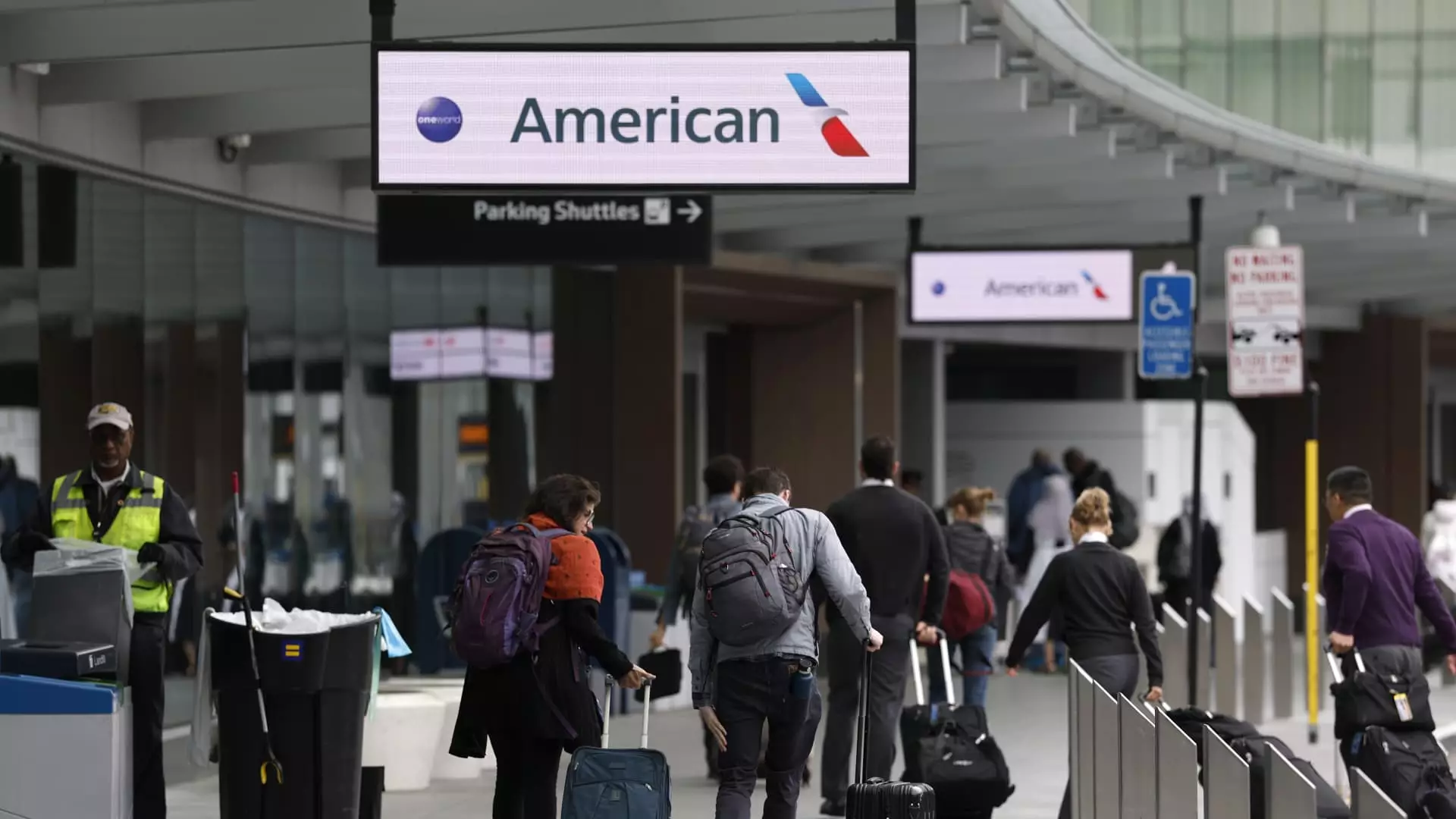As we glance at the skies, the once vibrant and bustling airline industry now finds itself facing dark clouds threatening a storm of economic uncertainty. Use of the term “recession” might seem alarmist; however, an alarming trend is becoming evident as airline CEOs deliver sobering messages to investors and stakeholders. Just this month, major players in the aviation sector expressed their concerns over dwindling domestic travel demand, a faltering economic forecast, and rising uncertainties driven by volatile market conditions and shifting political policies.
The discourse starts with American Airlines CEO Robert Isom, who expressed unease over the unpredictability that travelers face when planning vacations with their hard-earned money. If consumers choose to hold back due to economic stressors, it sets off a ripple effect throughout the airline industry, which has shown a history of sensitivity to public spending habits. It appears that, by offering optimistic targets at the start of 2025, these executives might have overreached, underestimating the weight of economic factors that hang ominously above.
Airlines Grounded by Financial Forecasts
The financial landscape in which airlines are operating has become increasingly turbulent, leading major carriers to revise their forecasts for 2025. Delta, Southwest, United, and Alaska Airlines have all pulled back from their earlier growth predictions amid rising signs that the economy may be on shaky ground. One striking point is United Airlines offering dual financial outlooks—transparent yet disheartening—depending on whether or not a recession occurs. Such a move signals to consumers and investors alike that economic fears are far from mere speculation; they are tangible concerns affecting the industry’s trajectory.
The resultant fallout has manifested in plummeting airfare, with ticket prices down by 5.3% compared to last year. While lower fares might initially suggest a boon for consumers, they also indicate that airlines are grappling with excess capacity. Faced with a saturation of seats, these companies are left with no choice but to slash prices to fill their planes—a clear indicator of softening demand. Though many would relish the opportunity to save on fares, the reality of the situation underscores a more troubling nuance for airlines: an underlying instability that could challenge their sustainability in the long run.
The Corporate Travel Predicament
In conversations surrounding airline revenue, the hesitation in corporate travel looms large. Corporate clients usually contribute a significant portion to a carrier’s revenue since their bookings tend to be less price-sensitive. But economic factors have caused such travel to plateau following a promising start to 2025. As Conor Cunningham, a travel analyst, succinctly noted, whenever economic uncertainties surface, corporate travel often becomes the first casualty. As reliance on this critical segment wanes, airlines are thrust deeper into the conundrum of balancing costs with dwindling income.
Delta’s CEO reported a decline in corporate travel growth, a chilling reminder of the fragility businesses face in this economic climate. The implications here extend beyond the airline industry; they reflect a broader economic sentiment where businesses are choosing to tighten their belts rather than indulge in expense accounts. As corporate travel stalls, the ripple effect could drastically impact airlines’ bottom lines and further push them towards additional fare reductions.
A Silver Lining or an Ominous Warning?
Despite these disconcerting developments, some executives believe that demand, especially for international flights, is holding steady at a higher price point. Viewpoints vary markedly, leading one to wonder whether optimism from some quarters signifies a beacon of hope or simply blinds optimism in the face of reality. CEOs like Isom appear to maintain that a restoration of economic certainty might alleviate these pressures, yet skepticism creeps in. Can airlines truly expect consumer confidence to rebound amidst such pervasive unpredictability?
The notion that travel is a reward for labor and meritocracy holds strong; however, as the public feels increasingly gripped by economic uncertainty, their discretionary spending will likely reflect their caution. The pivot toward cheaper airfare solutions may give immediate respite to consumers, but it serves as a double-edged sword for airlines barraged by falling demand. As the skies darken over this sector, decisive transformations and strategic adaptability will dictate whether the industry emerges unscathed or struggles against the tempest of economic downturns.

